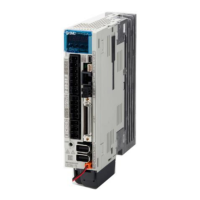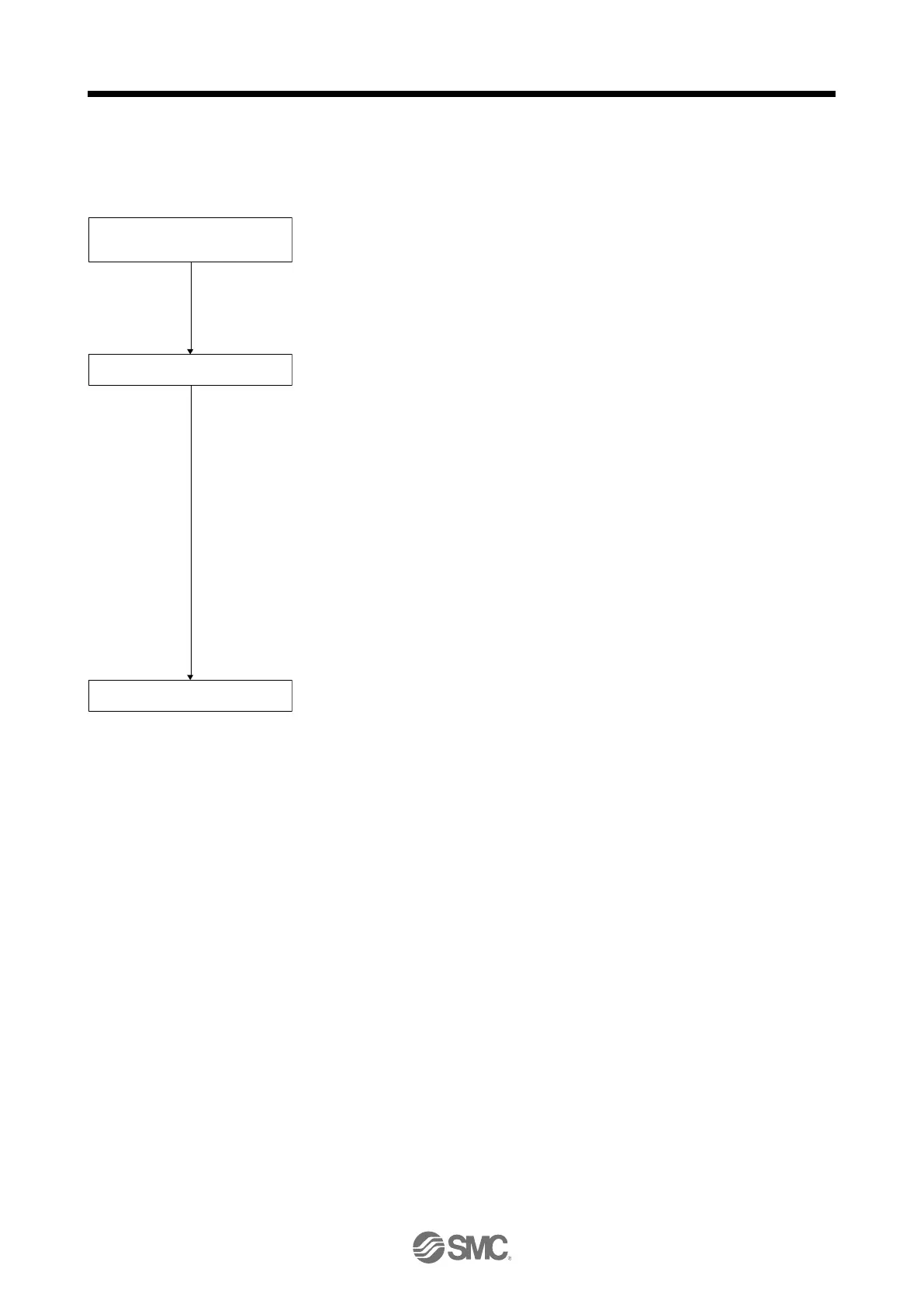In this step, confirm that the driver and servo motor operate normally.
With the servo motor disconnected from the machine, use the test operation
mode and check whether the servo motor correctly rotates at the slowest
speed. Refer to section 4.5.9 for the test operation mode.
In this step, confirm that the servo motor correctly rotates at the slowest
speed under the commands from the PC or PLC...etc.
Make sure that the servo motor rotates in the following procedure.
1) Switch on EM2 (Forced stop 2) and SON (Servo-on). When the driver is
put in a servo-on status, RD (Ready) switches on.
2) Switch on LSP (Forward rotation stroke end) and LSN (Reverse rotation
stroke end).
3) When VC (Analog speed command) is input from the PC or PLC...etc
and ST1 (Forward rotation start) or ST2 (Reverse rotation start) is
switched on, the servo motor starts rotating. Give a low speed command
at first and check the rotation direction, etc. of the servo motor. If the
machine does not operate in the intended direction, check the input
signal.
In this step, connect the servo motor with the machine and confirm that the
machine operates normally under the commands from the PC or PLC...etc.
Make sure that the servo motor rotates in the following procedure.
1) Switch on EM2 (Forced stop 2) and SON (Servo-on). When the driver is
put in a servo-on status, RD (Ready) switches on.
2) Switch on LSP (Forward rotation stroke end) and LSN (Reverse rotation
stroke end).
3) When VC (Analog speed command) is input from the PC or PLC...etc
and ST1 (Forward rotation start) or ST2 (Reverse rotation start) is
switched on, the servo motor starts rotating. Give a low speed command
at first and check the operation direction, etc. of the machine. If the
machine does not operate in the intended direction, check the input
signal. In the status display, check for any problems of the servo motor
speed, load ratio, etc.
4) Then, check automatic operation with the program of the PC or PLC...etc.

